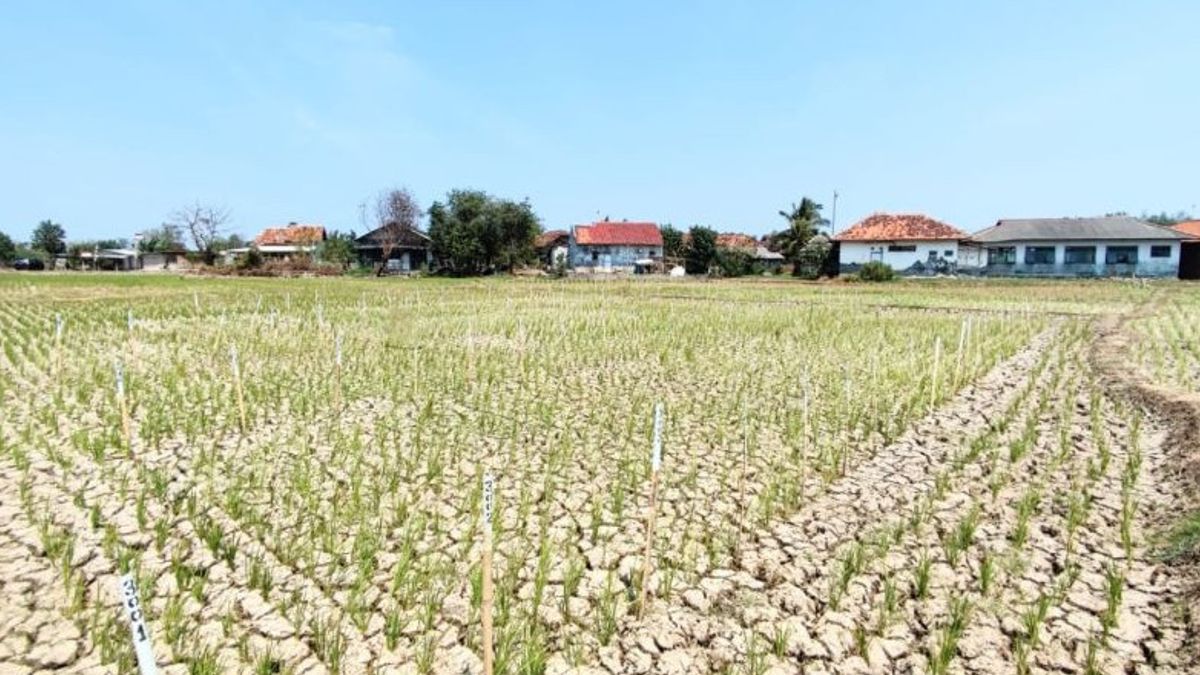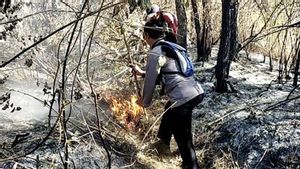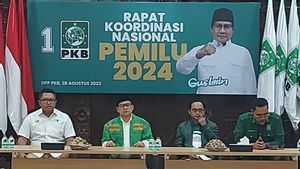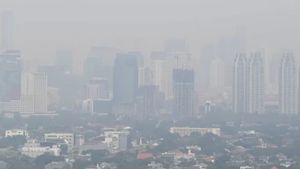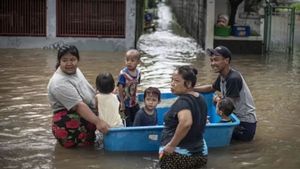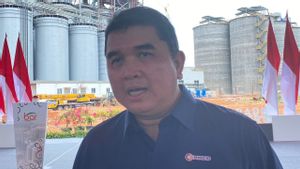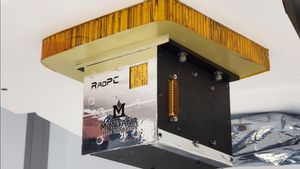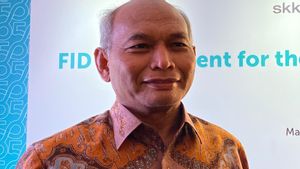JAKARTA - The National Research and Innovation Agency (BRIN) is developing rice varieties that are able to adapt to various extreme climate conditions to support food security in Indonesia.
Head of the BRIN Food Crops Research Center, Yudhistira Nugraha, said the new variety had not been released to the market, but potential varieties were being tested.
"Currently in the 7th and 8th generations, so it is hoped that in the next two years it can be released into new varieties," he said as quoted by ANTARA, Monday, August 28.
The Ministry of Agriculture has actually released and provided drought-resistant rice varieties, including Inpari 38 rain tadah, Inpari 39 rain tadah, Cakrabuana, Padjdjaran, and Inpari 42.
He said the advantages of rice varieties that are currently being tested are not only drought-resistant but also multitolerant to other environmental congestions, such as floods and salinity.
BRIN is currently still confirming the tolerance for seed phase drought. In addition to rice fields, researchers are also testing the phase of controlled conditions in greenhouses.
"We combine genes with molecular selection not only resistant to drought but also resistant to salinity and flooding. Generative phase testing is being carried out," he said.
BRIN has just tested the adaptive rice variety of the extreme climate on lowland rice fields around West Java. The test land was chosen because it represents the general land conditions at rice production centers on the island of Java.
SEE ALSO:
Yudhistira revealed the tough challenges related to the provision of food in the future because the area of land that can be planted is getting narrower.
According to him, the agricultural system in Indonesia must be managed in a modern way through the provision of quality seeds or varieties and more precise, efficient, and environmentally friendly cultivation technology that can be applied by farmers in Indonesia.
"Food diversification also needs to be encouraged in terms of production through the flow of other non-padi food crop commodities (sorghum, corn, other ceceria and nuts)," he said.
From a social perspective, he said, social engineering is needed so that Indonesians reduce rice consumption and switch to food diversity based on local resources.
"So that national food supplies are maintained and create a sustainable agricultural system," he said.
The English, Chinese, Japanese, Arabic, and French versions are automatically generated by the AI. So there may still be inaccuracies in translating, please always see Indonesian as our main language. (system supported by DigitalSiber.id)
